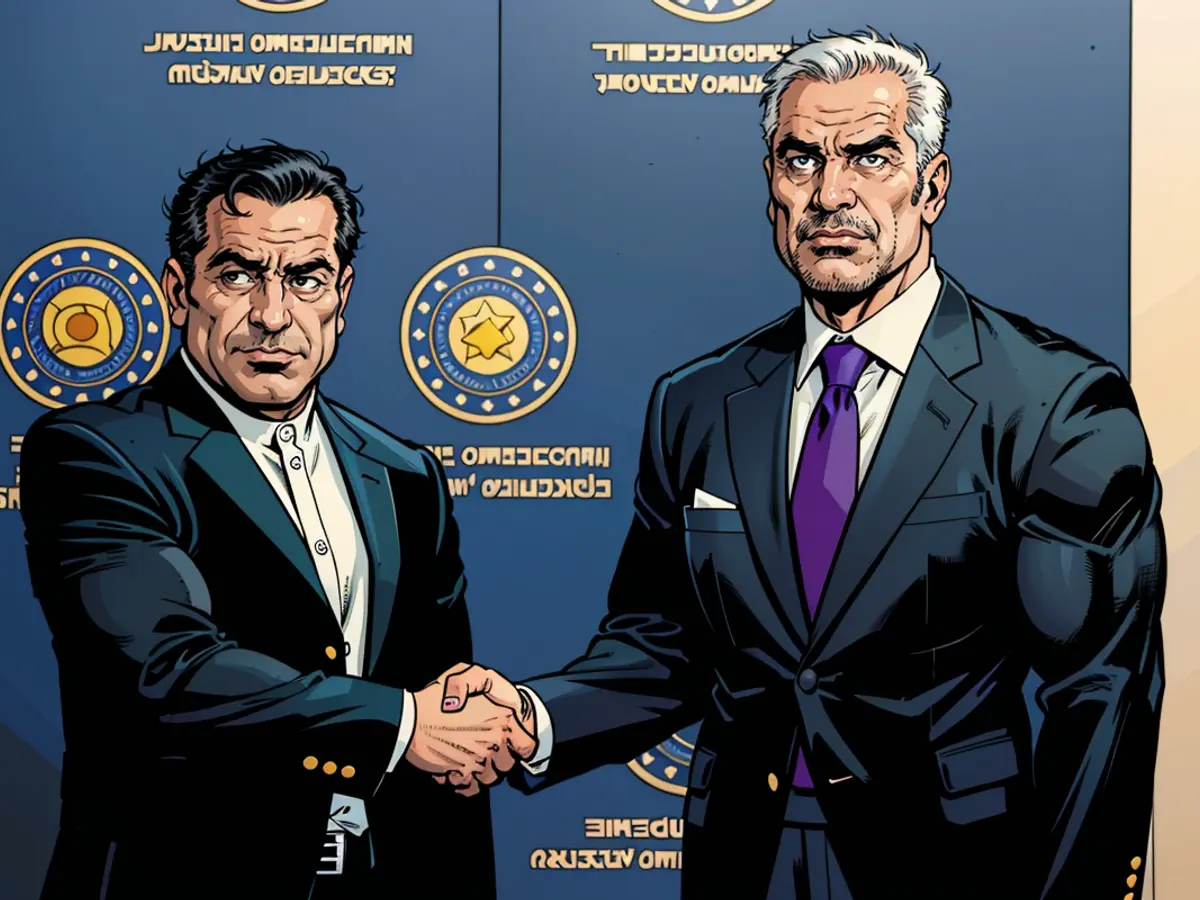Turkey alleges Israel as being responsible for the Iran conflict.
Turkish Foreign Minister Hakan Fidan recently accused Israel of attempting to involve Iran in a regional conflict. In a joint press conference with his Iranian counterpart, Abbas Araghtchi, Fidan asserted that Israel is instigating new conflicts and aiming to draw Iran into this war. This accusation came shortly before Israeli Prime Minister Benjamin Netanyahu's alleged aggressive actions.
Fidan further added that Iran's defensive measures, or "legitimate steps," are being necessitated by Israel's provocative conduct. He emphasized the potential risks of the conflict expanding to encompass the entire region and cautioned against underestimating these threats.
Araghtchi, for his part, expressed concern over the escalating violence in Lebanon, labeling it "troubling." He reiterated that the risk of war in the region remains significant, with only a select few, primarily the Zionist regime, favoring such an outcome. Araghtchi affirmed Iran's goal of de-escalating tensions but stressed their readiness to confront any scenario.
The aforementioned meeting between Fidan and Araghtchi occurred just before German Chancellor Olaf Scholz's visit to Turkish President Recep Tayyip Erdogan in Istanbul. As per the German government, the discussions in Istanbul would address the Middle East's situation, among other issues.
Iran is a known supporter of the extremist Islamic Palestinian organization Hamas and the Hezbollah militia in Lebanon, among other anti-Israel forces. Tehran refers to this alliance as the "Axis of Resistance," positioned against Israel. The conflict between Israel and Hamas has been ongoing for over a year now, triggered by Hamas' massive attack on Israel on October 7, 2023. Since then, the Israeli army has intensified its attacks on Hamas in the Gaza Strip.
Following Hamas' invasion, Hezbollah initiated a second front against Israel with continuous air attacks. The already tense relationship between Israel and Hezbollah has deteriorated significantly over the past few weeks. Iran, in response, assaulted Israel with around 200 rockets on October 1, marking the second direct Iranian assault on the country within the past six months. Tehran justified the attack as a retaliatory measure against the Israeli army's killing of Hezbollah chief Hassan Nasrallah.
Israel, in retaliation, announced their intention to respond to the Iranian attack. The Iranian Revolutionary Guards warned that Israel would be met with severe retribution should they target Iranian objectives.
The European Union, being a key player in the Middle East conflict resolution, has expressed concern over the escalating tensions between Iran and Israel. In a recent statement, the European Union urged for diplomatic efforts to de-escalate the situation and prevent the engagement of additional parties, such as the European Union, in the regional conflict.
Furthermore, the European Union has emphasized the importance of maintaining peace and stability in the Middle East, stressing that any escalation of violence could have severe consequences for the region and its neighboring nations, including the European Union.








